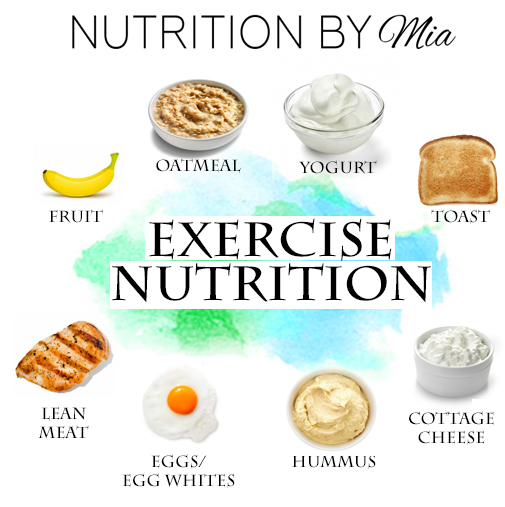
Whether you are an elite or recreational athlete, there is no doubt that nutrition plays an integral role in endurance and recovery. Research suggests that athletes can benefit from nutrition intervention to improve their performance and physical results.
Importance of calories and macronutrients
The most important component of training and performance is ensuring adequate caloric intake to support energy expenditures, endurance and muscle mass. Your energy and nutrient requirements will vary with weight, height, age, sex and metabolic rate. It will also be influenced by the type of exercise you are engaging in, the frequency, intensity and duration. Individuals engaging in a general fitness regimen can meet their macronutrient needs by consuming a normal diet of 45-55% calories from carbohydrates, 10-15% from protein and 25-35 % from fat.
Glucose from glycogen stores is the first source of fuel for exercising muscle. These stores are depleted as you engage in endurance exercise. When stores drop to a critically low level, high-intensity exercise cannot be maintained and this is often referred to by athletes as “hitting a wall”.
Preexercise nutrition
The purpose of a preexercise meal is to keep athletes from feeling hungry before and during exercise and to maintain ideal levels of blood glucose for exercising muscles. Pre exercise meals should be high in carbohydrates, non-greasy and readily digested. Fat should be limited since it takes longer to digest and delays gastric emptying. Foods that are high in fiber and lactose should also be avoided since they can cause GI upset. A lot of it is figuring out what works best for you and gives you the necessary energy to fuel you through your activity. Some examples of preexercise meals include:
- plain bagel with jam
- baked sweet potato
- cereal
- low-sugar fruit smoothie with protein powder.
Post-exercise nutrition
Contrary to popular belief, only about 5% of muscle glycogen used during exercise is resynthesized each hour following exercise. To optimize muscle glycogen synthesis rates, you should consume carbohydrates immediately after exercise at about 15 to 60 minute intervals for up to five hours after exercise. Research suggests that consuming high glycemic carbohydrates yields the greatest results in repleting high muscle glycogen levels versus low glycemic carbs. Adding protein (5-9 g per 100 g of carbs) after exercise, additionally increased glycogen resynthesis.
Protein needs are only slightly elevated during exercise. Research over the last decade indicates that athletes engaging in intense training should consume about 1.5-2 grams of protein per kilogram of body weight per day to maintain protein balance. Consuming more protein than the body can use is not necessary and can compromise carbohydrate status and therefore affect your ability to train optimally.
Nutrients to focus on:
B Vitamins: B vitamins serve as coenzymes in energy cycles and therefore needs increase when you increase energy metabolism with exercise.
Antioxidants: Our cells continually produce free-radicals and reactive oxygen species. These are neutralized by antioxidants which can protect cell membranes from oxidative damage. Some powerful antioxidants found in our foods include vitamins A, E, C and selenium. It is unclear whether exercise increases the need for additional antioxidants but a diet high in antioxidants may improve performance in deficient individuals. They also may have a role in enhancing recovery from exercise.
Iron: This nutrient is one of the most important when it comes to sports performance. It is a component of hemoglobin which is needed for transporting oxygen from the lungs to tissues. An iron deficiency will limit aerobic endurance.
Calcium: The female athlete triad is an unfortunate pattern becoming more common among female athletes characterized by estrogen deficiency, amenorrhea, low body fat and loss of bone mass. Some women who exercise strenuously may stop menstruating. Lack of estrogen can have a negative impact on bone health that may never be reversed. Ensuring that you are getting adequate calcium in your diet, will help prevent this from happening.
Fluids:
Exercise produces heat which must be eliminated from the body to maintain optimal body temperature. Regular fluid intake is essential to maximize physical performance. Environment will have a large impact on your thermoregulation. Daily fluid recommendations will vary depending on body size, physical activity and environmental conditions. 3.7 liters/day for males and 2.7 liters/day for female is the general recommendation.












